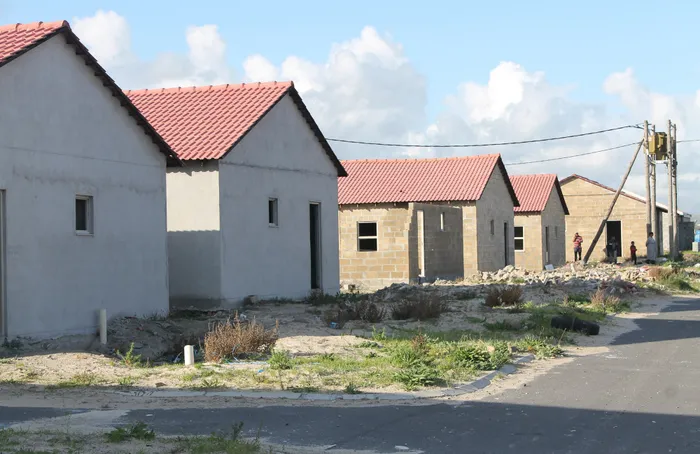Operation Vulindlela Phase II faces hurdles in local governance, spatial integration reforms
ECONOMIC REFORMS

Thousands of Gauteng residents have been left in limbo over the past years due to a backlog of title deeds. OV is a joint initiative of the Presidency and the National Treasury which aims to achieve more rapid and inclusive economic growth through a programme of far-reaching economic reforms.
Image: Sisonke Mlamla/Independent Newspapers
Local government and spatial integration have remained the two most pressing issues in which the government continues to struggle to implement reforms at the onset of Phase II of Operation Vulindlela (OV) even though momentum was gaining traction in other areas.
According to the OV progress report for the first quarter for the 2025/26 financial year, reforms on these two were facing significant challenges and an intervention is required.
OV is a joint initiative of the Presidency and the National Treasury which aims to achieve more rapid and inclusive economic growth through a programme of far-reaching economic reforms.
Seven priority reform areas have been approved by Cabinet as part of OV Phase II, including energy, water, freight logistics, visa system, local government, spatial integration and housing, and digital public infrastructure reform.
“These reforms were selected for their high potential to catalyse investment, enhance economic competitiveness, and create jobs. Phase II represents a second wave of structural reform aimed at unlocking more rapid, inclusive, and sustained economic growth,” said Treasury.
“While continuing to drive implementation of reforms initiated during Phase I, the second phase introduces new focus areas that respond to evolving challenges in the economy.”
According to the report, the standardising and professionalisation of the appointment of senior officials in local government is facing significant challenges and requires intervention.
There is also no data or reform has not started yet on shifting local governments to a utility model for water and electricity services to ensure the financial and operational sustainability of municipalities.
The report said the next steps would now be to ensure that the final Performance Improvement Action Plans for water and electricity utility turnarounds were tabled for Council approval by participating metros.
Another step was to conduct an independent assessment of these Performance Improvement Action Plans to determine eligibility for the performance-based financing incentive and develop a draft White Paper on Local Government outlining institutional reforms to the local government system for wider consultation.
In terms of spatial integration, the report noted issues in clearing the backlog of title deeds and making the titling system more accessible and affordable.
This comes as the Titling Symposium convened by the National Department of Human Settlements (NDHS) identified the structural barriers to the issuance of title deeds and resulted in an action plan to address the backlog of title deeds.
According to the report, a comprehensive analysis of title deeds data for all metros and provinces has been undertaken to determine the backlog for metros and provinces, and to identify properties owned by the state that could be processed for transfer without delay.
It said that work was underway between OV and NDHS to redesign the First Home Finance programme and to develop a demand-side subsidy programme for affordable rental housing. Design work is expected to be completed by September 2025.
In terms of the next steps, the report said priority was now implementing the action plan to address the title deeds backlog, including by resolving challenges with township establishment and other structural barriers.
Another priority will be to complete detailed design work on strengthened demand-side subsidies for affordable rental and ownership, to accelerate the provision of housing units and leverage private sector investment in the housing market.
Conducting a comprehensive review of the legal and regulatory framework to identify obstacles to low-cost property development and incentivise housing development in city centres is another step the report recommended to deal with spatial integration.
BUSINESS REPORT